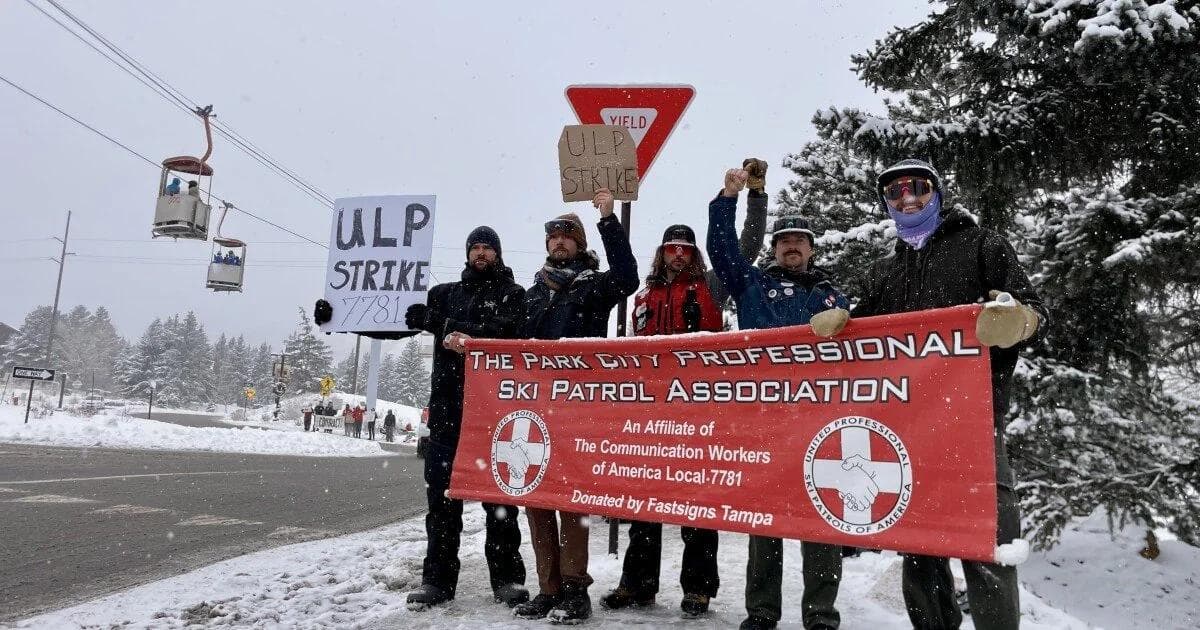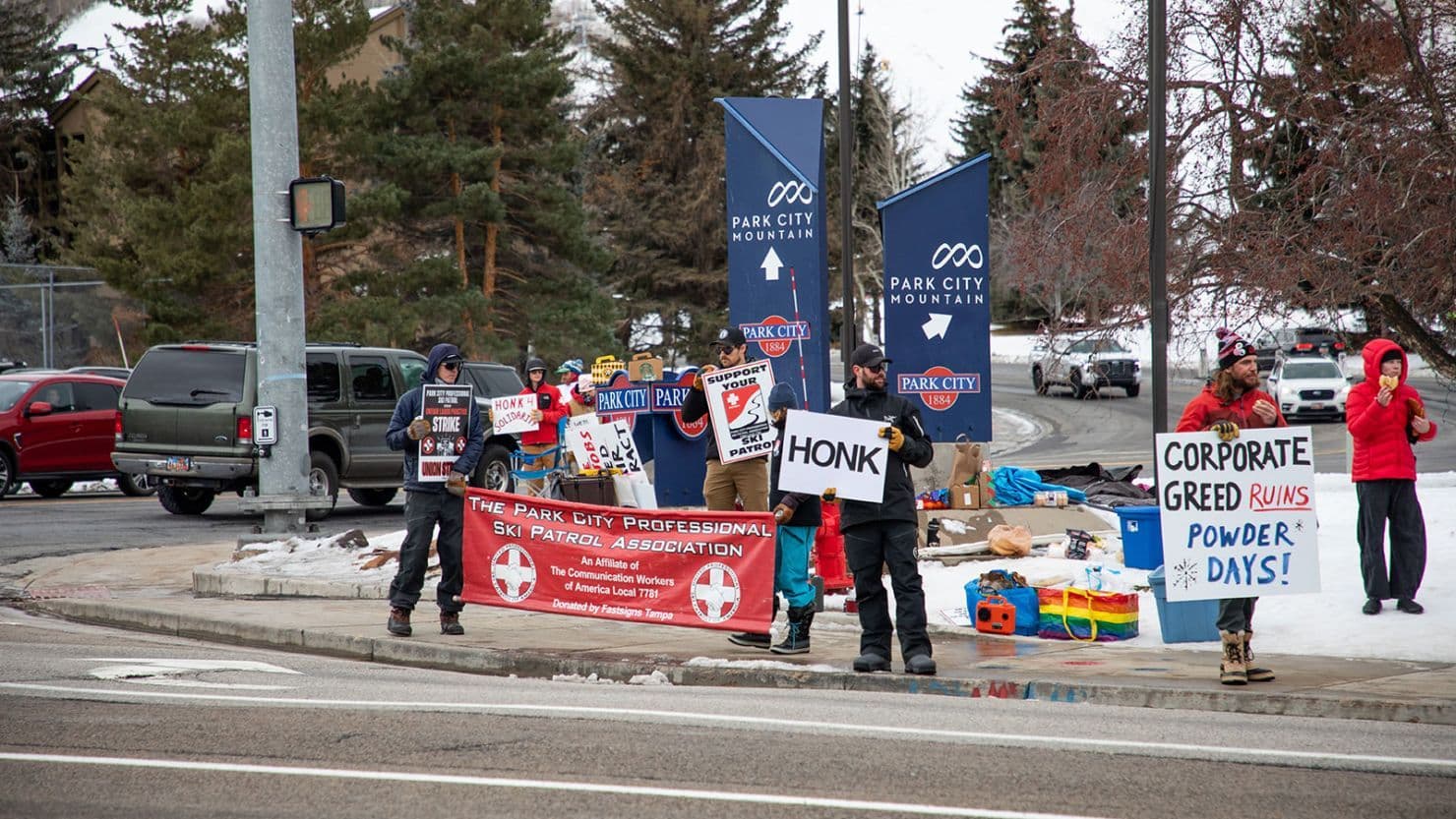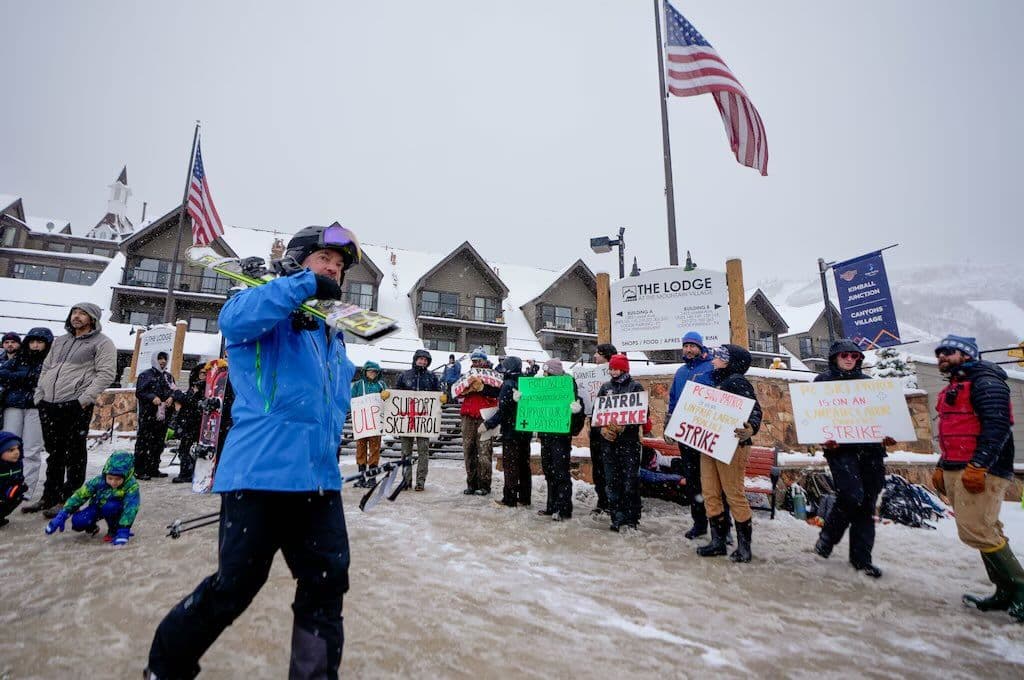
Park City Ski Patrol Strike Hitting Vail Resorts Where It Hurts
Published Date:
Categories
Wage Dispute Leads to Major Disruptions at Park City Mountain Resort
Park City Mountain Resort faces a significant challenge as ski patrol members initiated a strike during the peak holiday season, demanding higher wages from owner Vail Resorts. The walkout, which began December 27, saw more than 200 patrollers forming a picket line after months of unsuccessful wage negotiations.
The patrol union seeks to raise the starting hourly base pay from $21 to $23 – a modest increase when compared to the resort's current pricing structure, where a single-day lift ticket costs $328 and a hamburger runs $25. During the crucial holiday week, typically the busiest period for ski resorts, only 50 of the mountain's 350 trails remained open. Recent snowfall has allowed the resort to double its available terrain.

The dispute has notably impacted Vail Resorts' market performance, with stock prices dropping 6.6% following the strike announcement. Bill Rock, president of Vail Resorts' mountain division, defended the company's position, stating patrol wages have increased over 50% in the past four years. The company pointed to strong interest in patrol positions, citing 3,000 applicants for 300 openings in the 2024-25 season.
The Park City Professional Ski Patrollers Association expressed strong disagreement with the negotiation process, stating they refuse to have their proposals dismissed while their labor generates substantial holiday profits for the company. This sentiment reflects growing tension between front-line workers and management.
The strike adds to mounting challenges for Vail Resorts, which operates 42 ski mountains including flagship properties like Vail, Breckenridge, Whistler Blackcomb, and Stowe. Their innovative Epic Pass program, launched in 2008, revolutionised ski resort access by offering multi-mountain access at $982 for the 2024-25 season. While this initially caused revenue to dip, it led to a tripling of revenue over the following twelve years as skiers embraced the cost-effective alternative to traditional local passes.

However, recent years have brought significant operational challenges. Revenue has plateaued, and stock values have fallen 52% from late 2021 highs, which coincided with Rob Katz stepping down as CEO after 15 years at the helm. The 2021-22 season saw widespread worker shortages affecting mountain operations, food service, and retail businesses. Washington's Stevens Pass experienced particularly severe difficulties, leading to the creation of the "epicliftlines" Instagram account, which rapidly gained 50,000 followers documenting operational issues.
The company attempted to address staffing challenges by increasing its minimum wage to $15 per hour at many locations before the 2021-22 season, followed by a bump to $20 for 2022-23. Current CEO Kirsten Lynch emphasised the company's focus on talent development during a March 2022 earnings call, stating their commitment to leading in compensation, hiring, and career development.
Weather-related challenges have further complicated operations. Last season's unusually warm conditions forced Vail to revise revenue and earnings targets downward, with snowfall at western resorts dropping 28% compared to the previous year.
Rock acknowledged the current situation's impact, stating, "We deeply regret that this is having any level of impact on the guest experience and are grateful to our thousands of employees who are working hard every day to enable the experience at Park City Mountain and open the terrain that we can safely open."
The dispute shows signs of potential resolution, as Park City Mountain's management team and the patrol union have scheduled mediation sessions. These discussions could prove crucial for addressing both immediate operational challenges and longer-term labor relations at one of North America's premier ski destinations.


